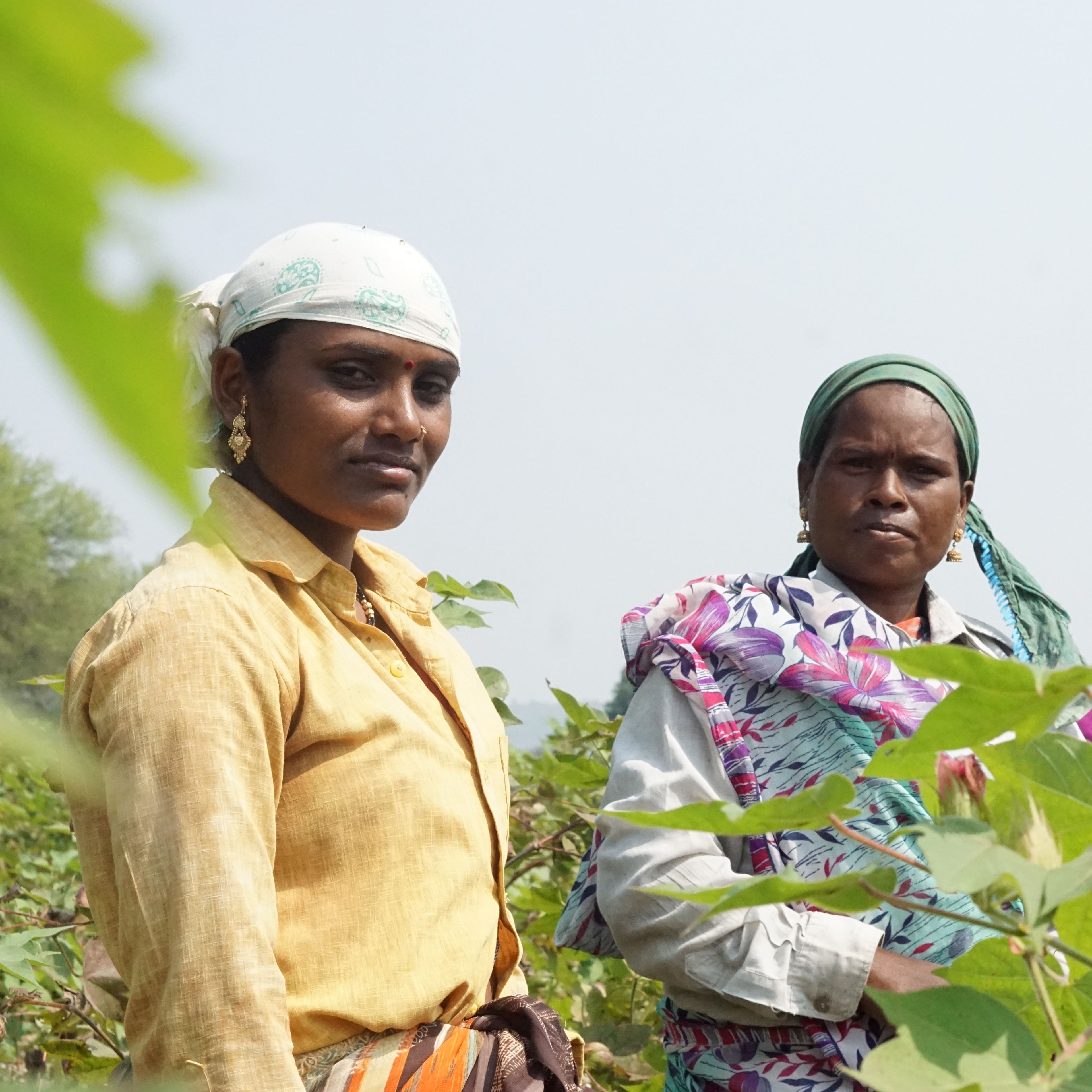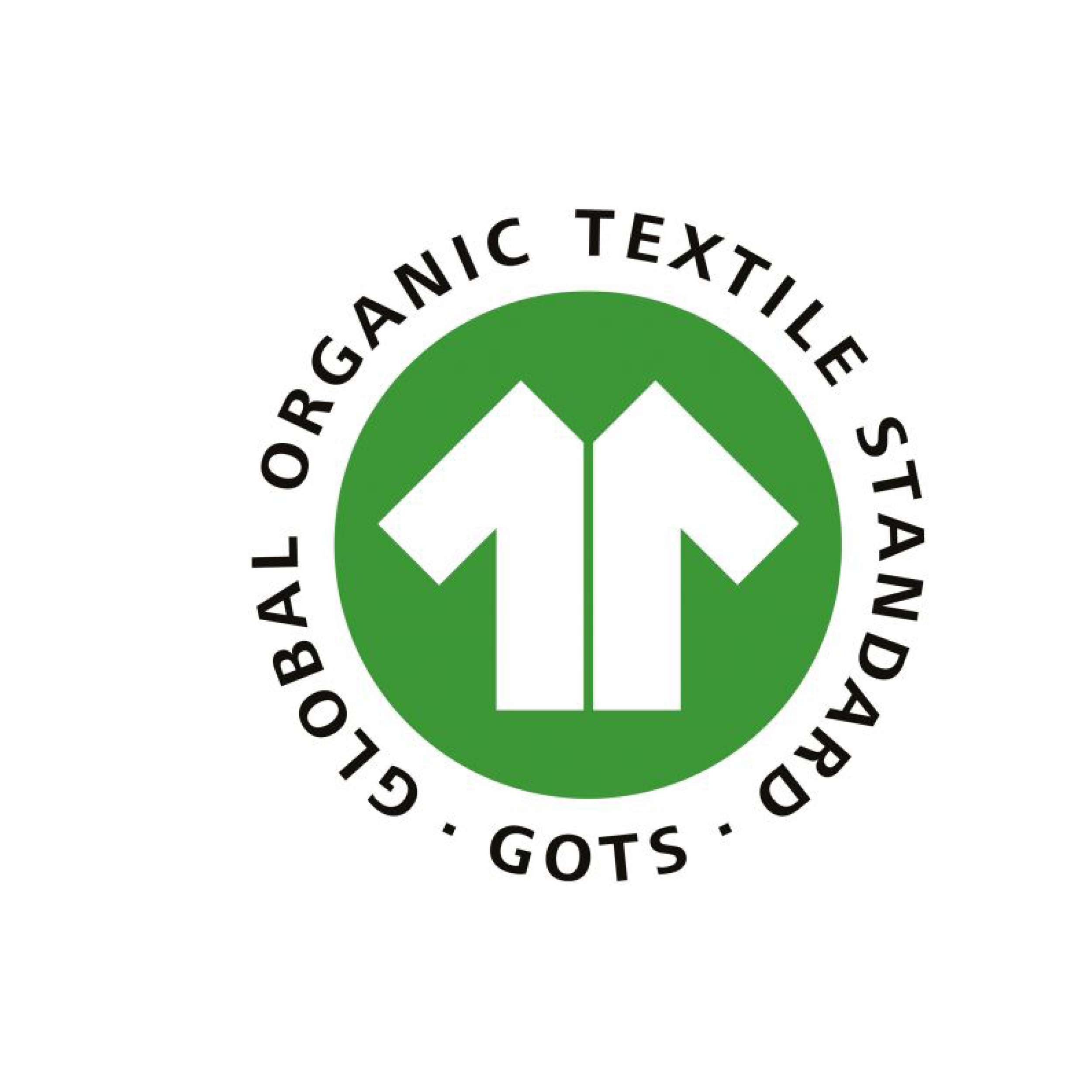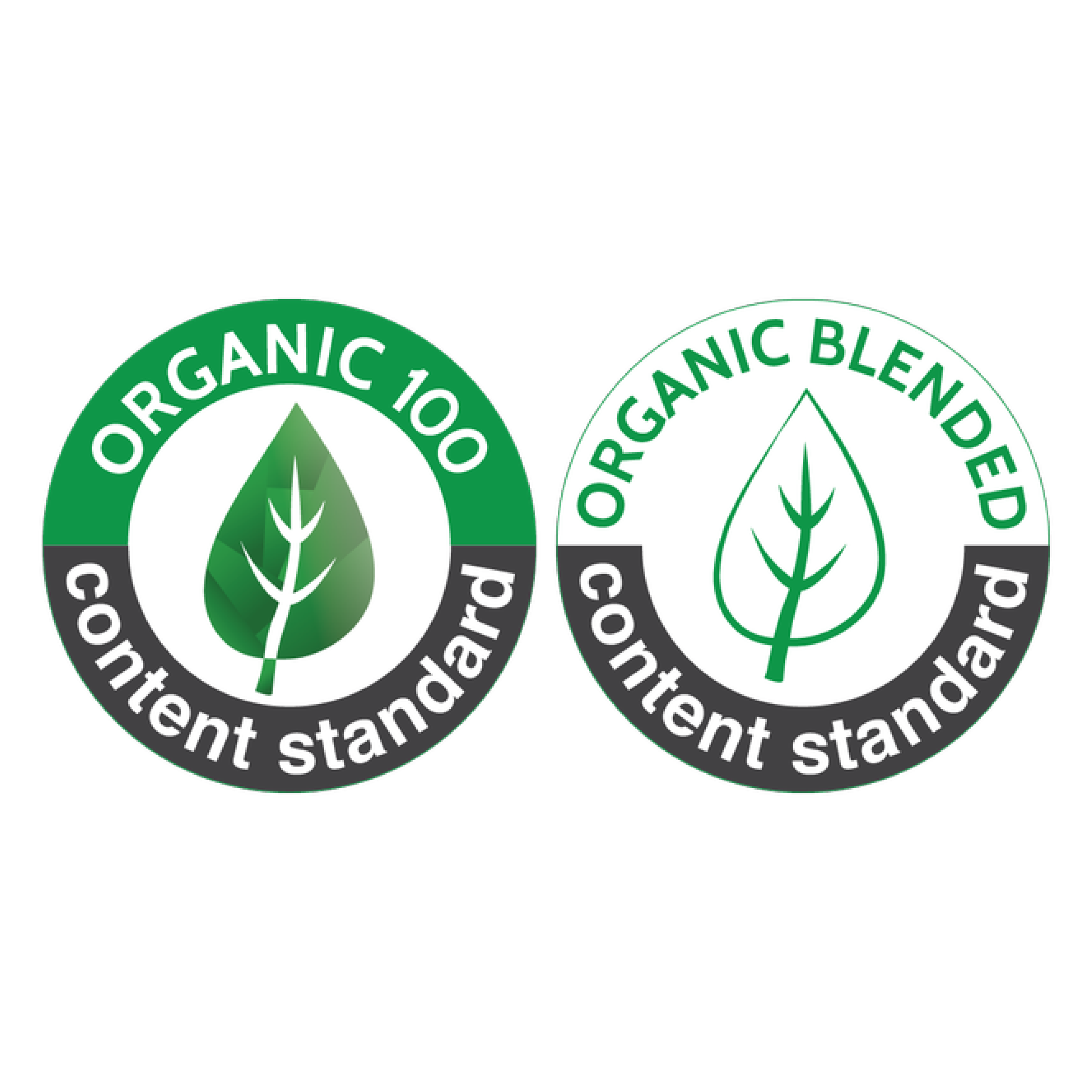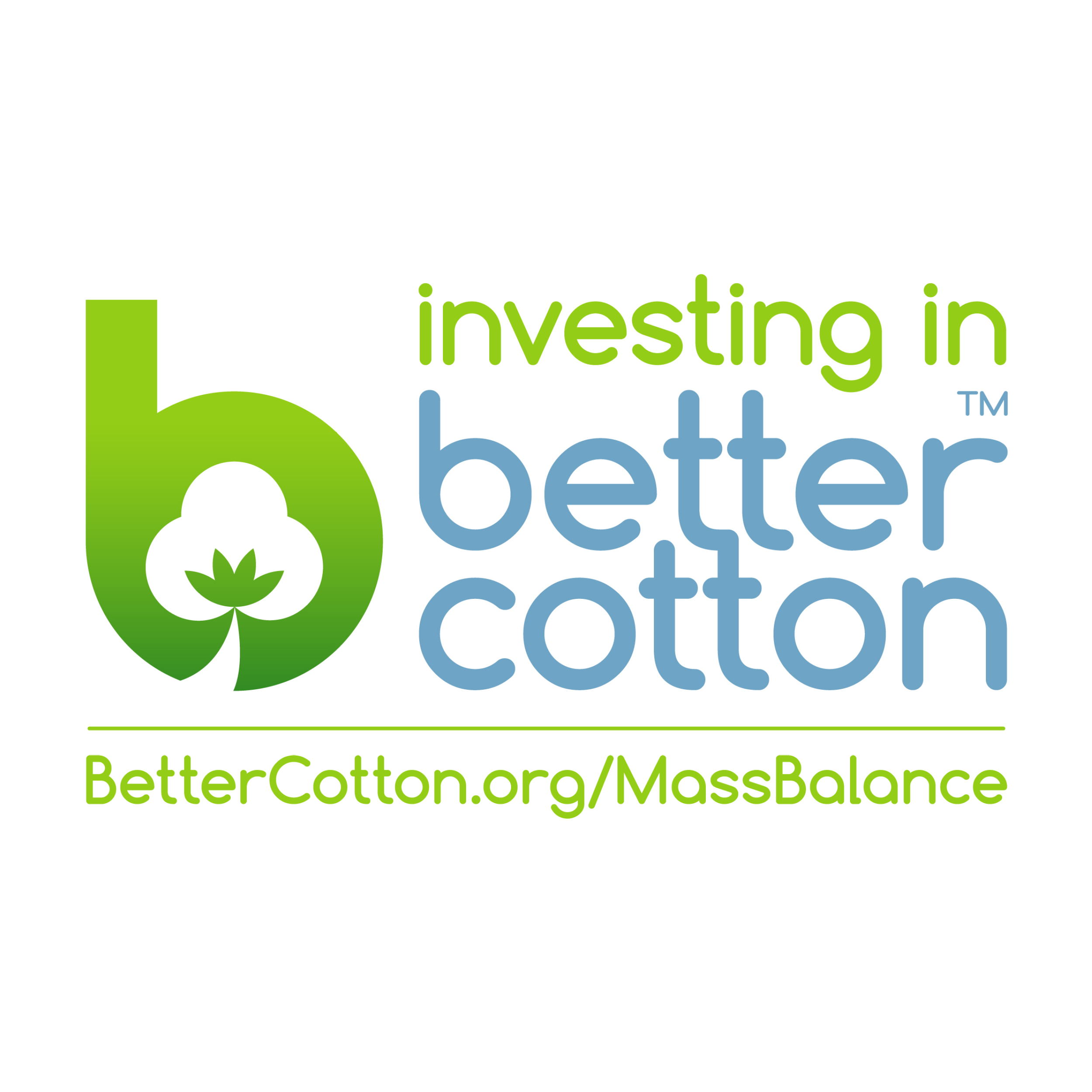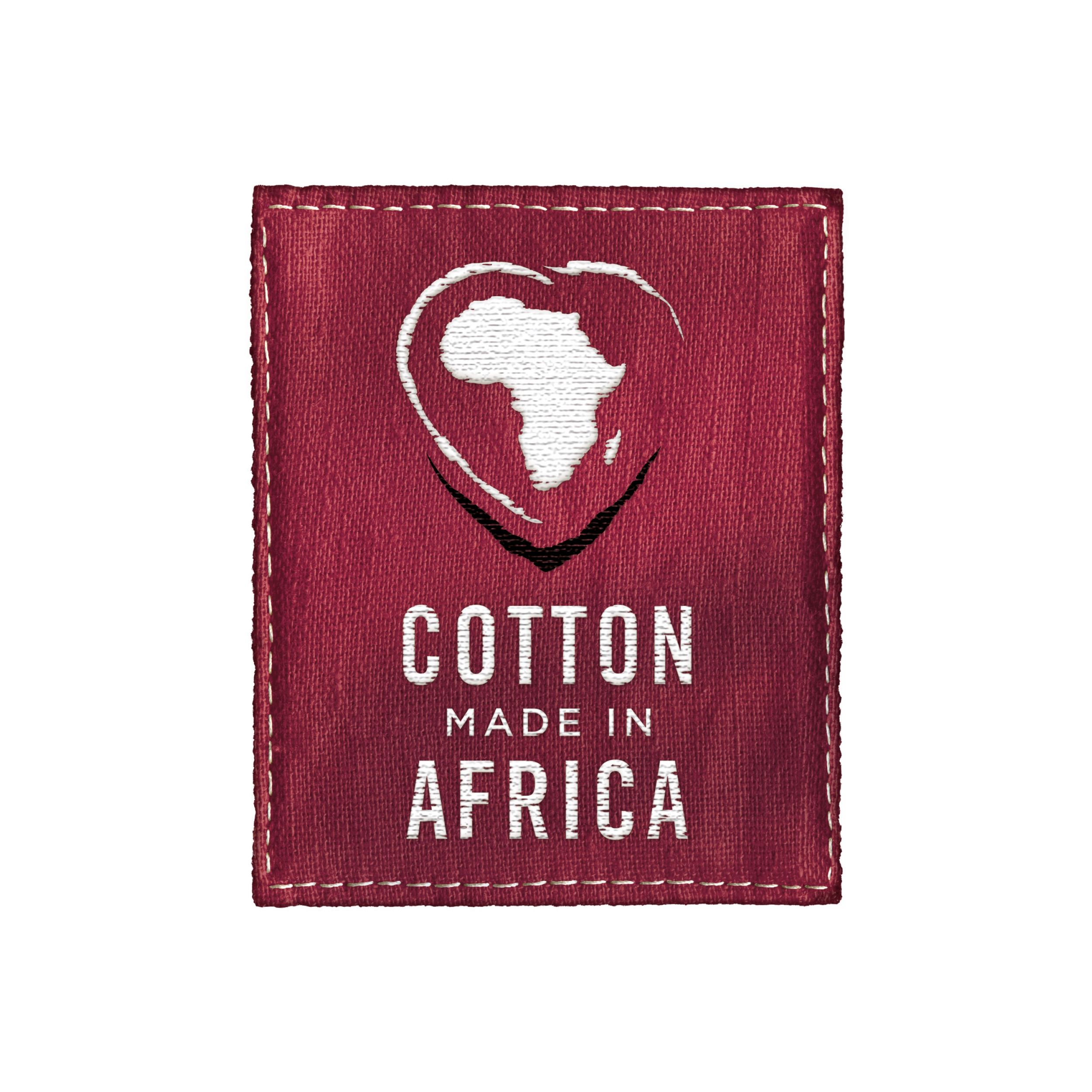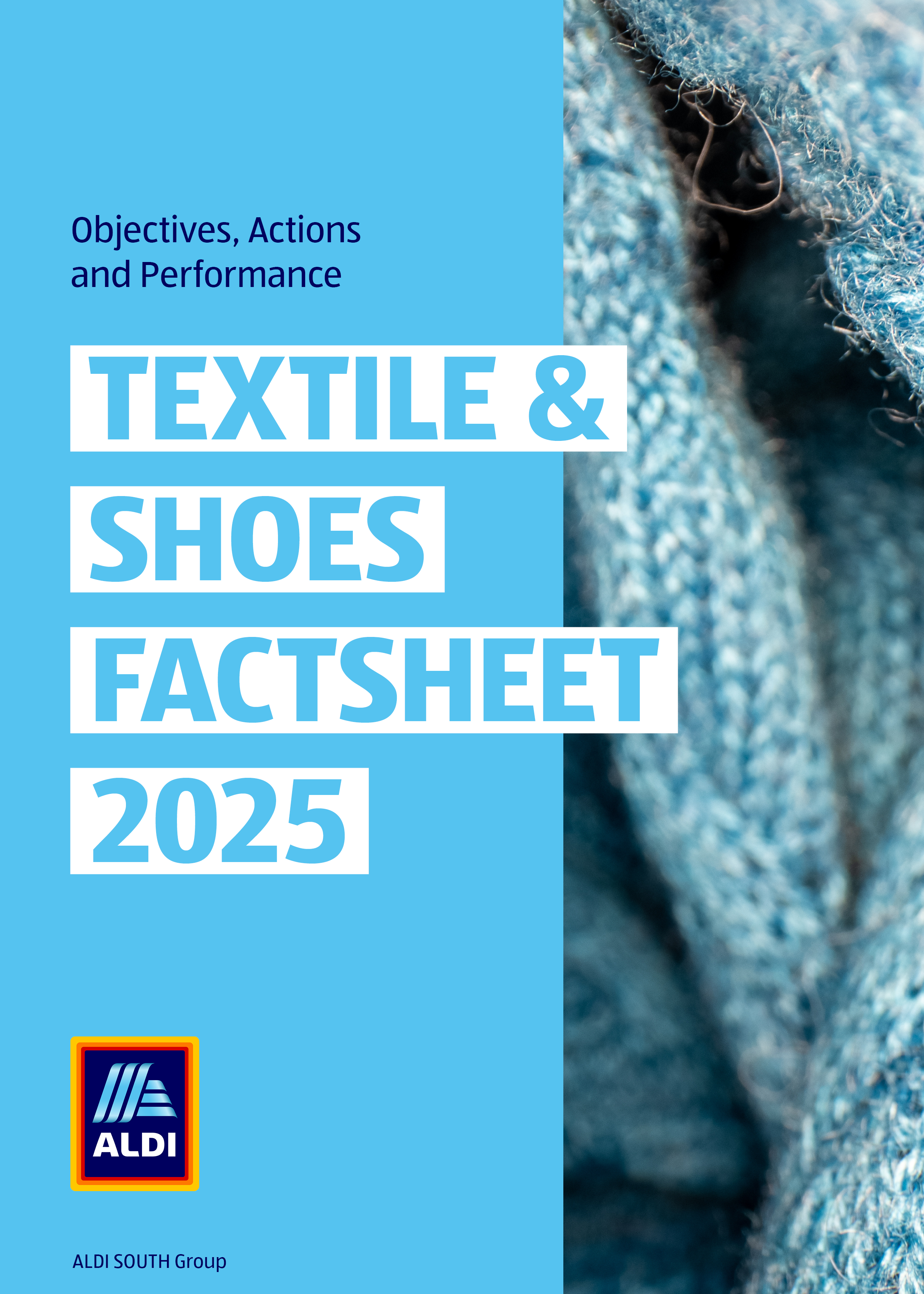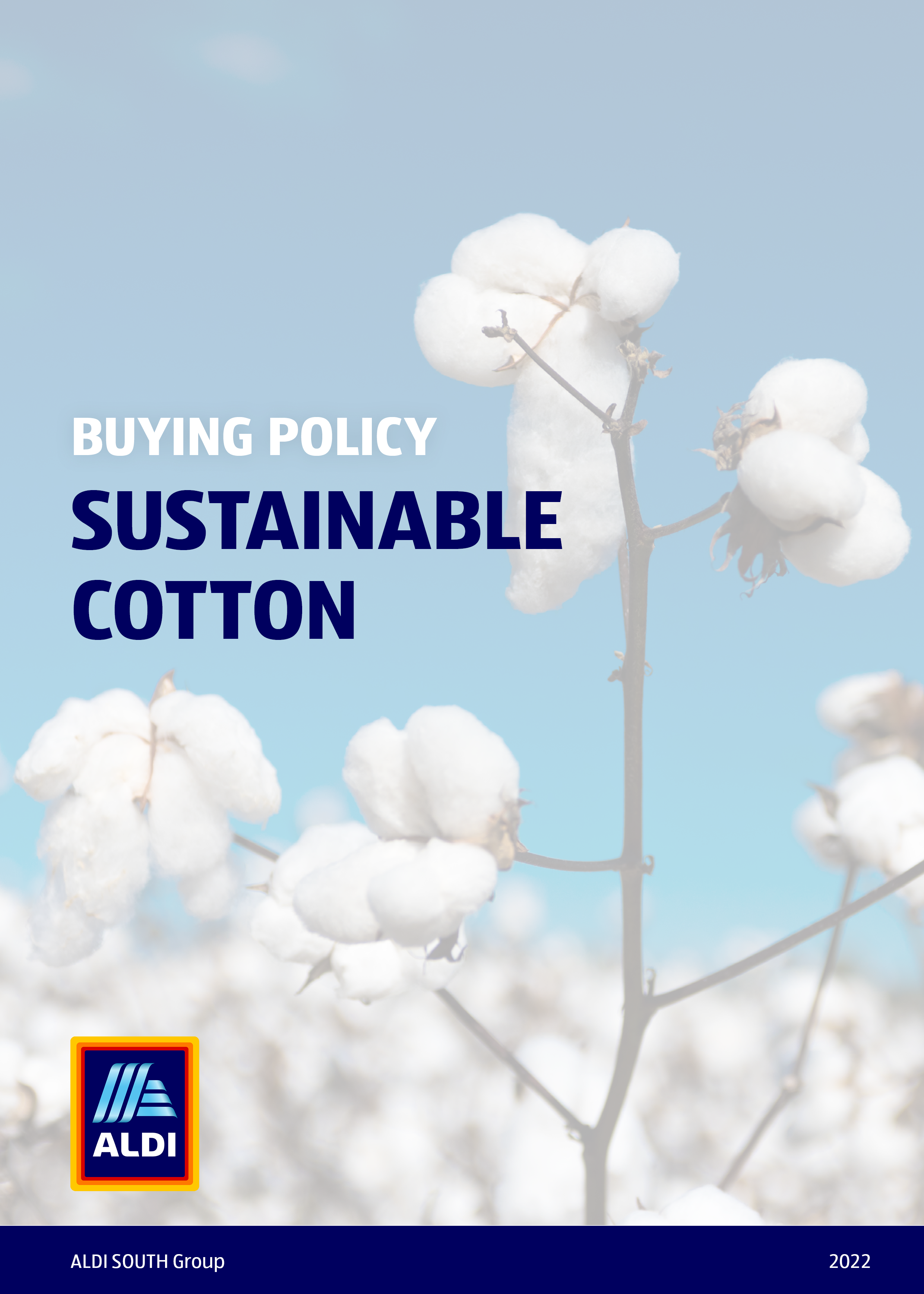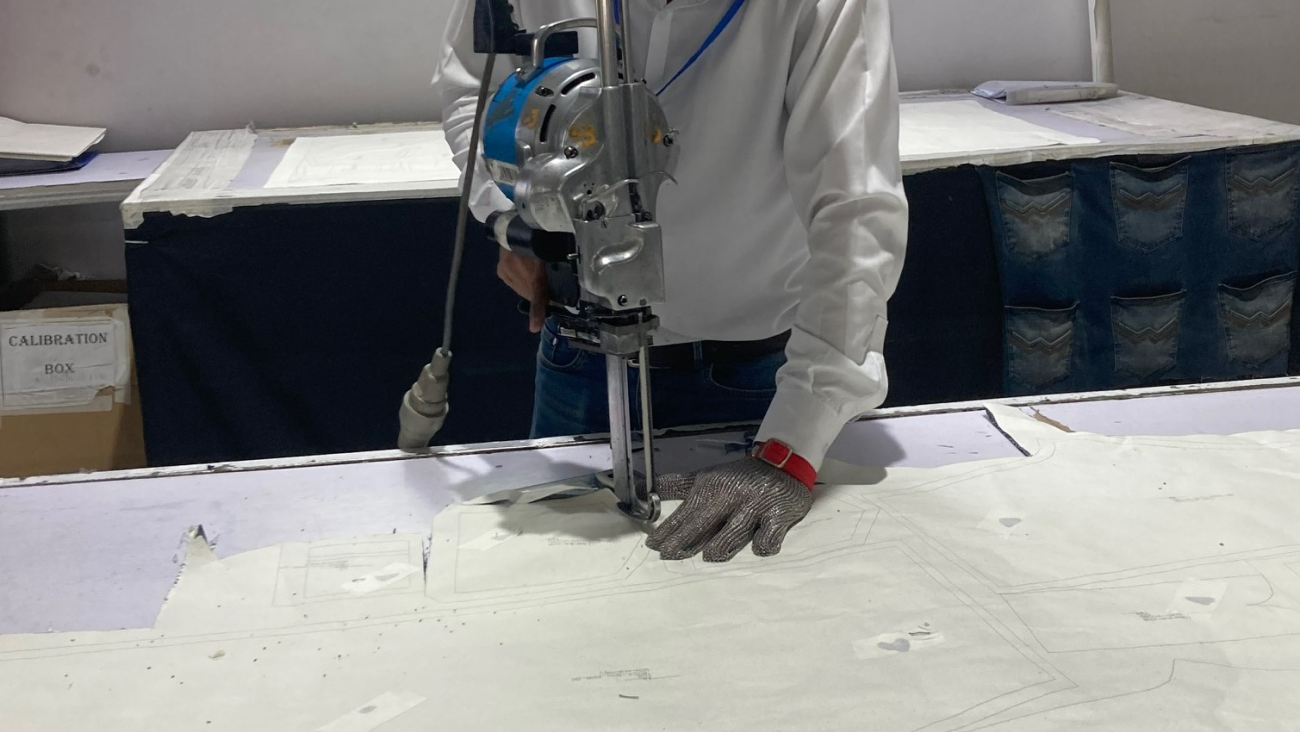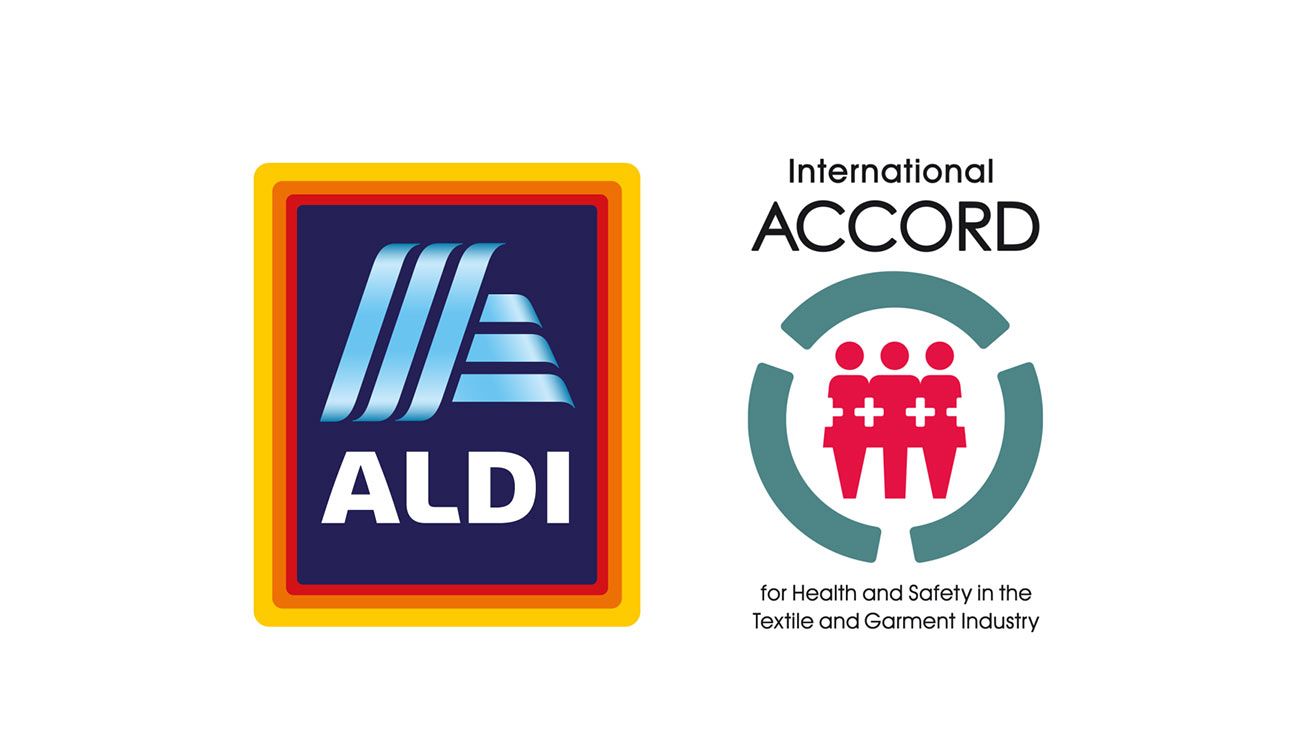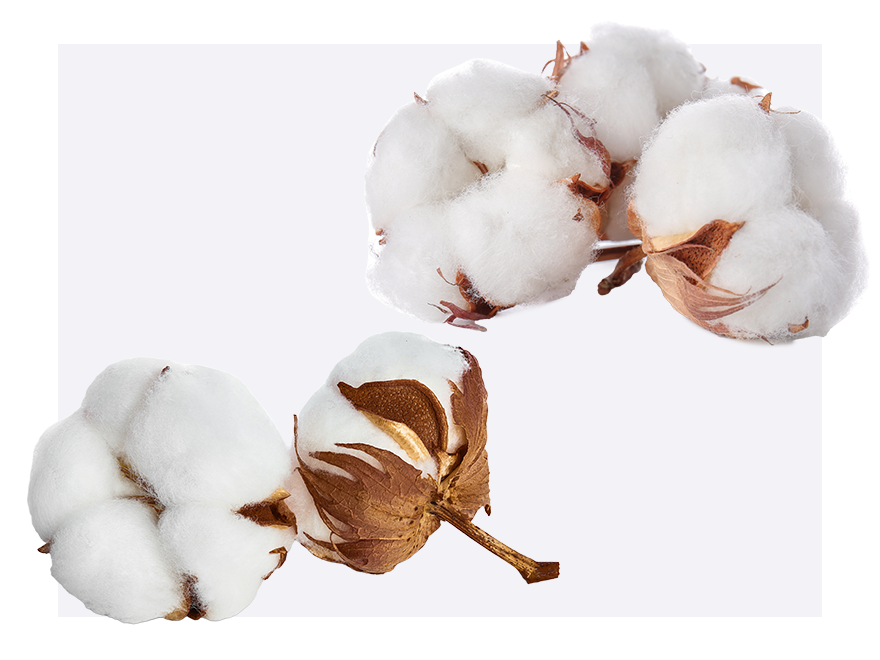
Together with our business partners, we are committed to achieving long-term sustainable improvements in the cultivation of cotton. By 2025, our own-brand ALDI garments and textiles will contain 100% sustainable cotton.
Chances and challenges in cotton production
Cotton accounts for the majority of fibres used in ALDI garments and household textiles. It is a strong, breathable and renewable natural resource that is fully biodegradable. At the same time, cotton cultivation and processing are linked to human rights and environmental risks. The intensive use of chemicals and pesticides contaminates soil, nearby rivers and groundwater. Cotton production also requires a large amount of water, which can lead to water scarcity and the conversion of natural habitat for agricultural use endangers existing ecosystems.
Together with our business partners, we strive towards long-term sustainable improvements in cotton cultivation increasing recycling and organic cotton production. We exclude cotton from countries where cultivation and harvesting are systematically associated with human rights violations.
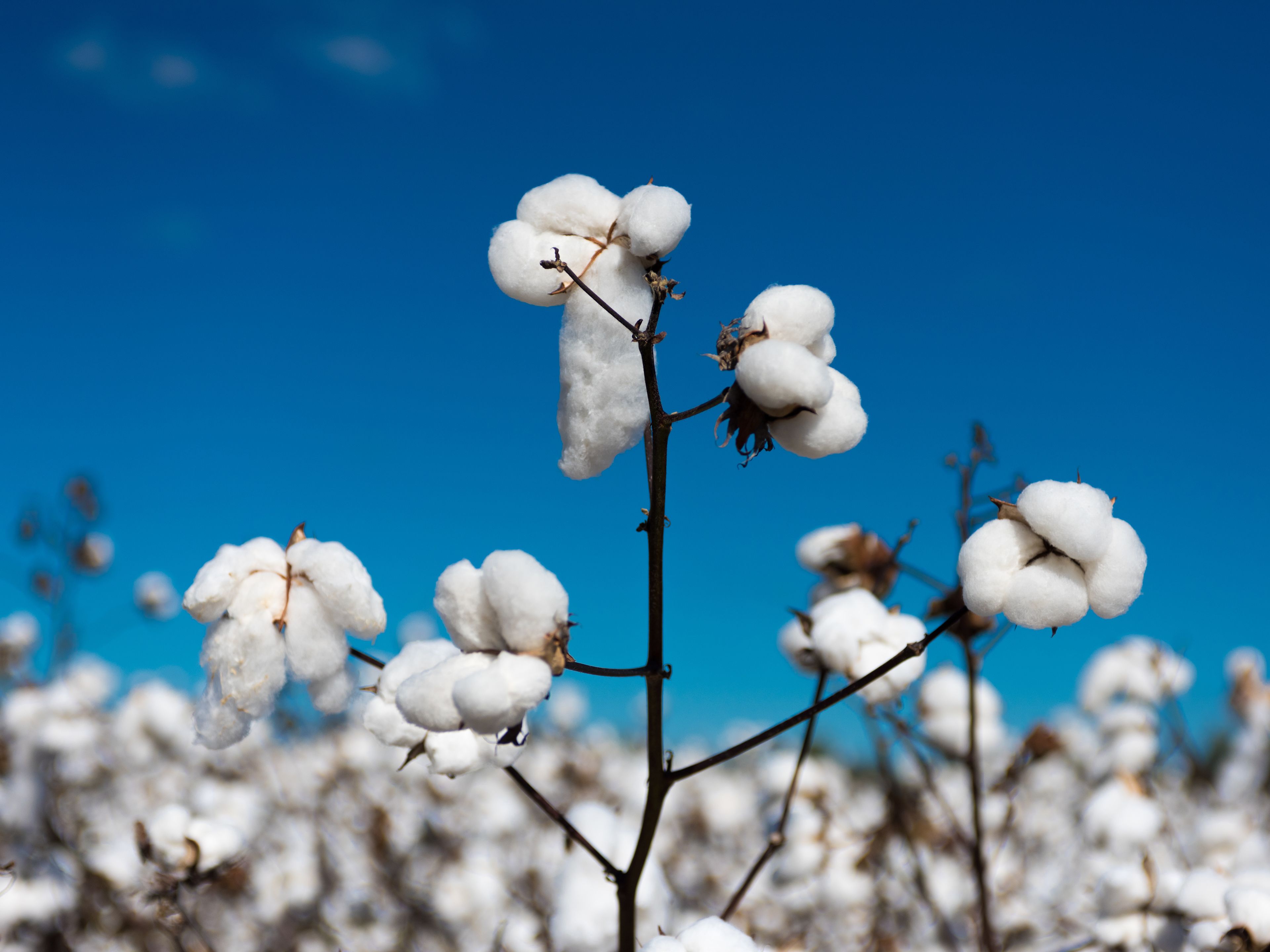
ALDI supports cotton farmers in India in moving from conventional to organic farming. Currently, organic cotton accounts for approximately 1% of the global cotton market. Our long-term goal is to increase the availability of organic cotton. By sourcing directly from farmers, we can secure their businesses whilst they are in the certification process.
The transition from conventional to organic cotton farming takes up to three years. During the transition period, we provide in-depth training for the smallholder farmers. The cotton from this project is used for our own brand products.
ALDI supports cotton farmers in India in moving from conventional to organic farming. Currently, organic cotton accounts for approximately 1% of the global cotton market. Our long-term goal is to increase the availability of organic cotton. By sourcing directly from farmers, we can secure their businesses whilst they are in the certification process.
The transition from conventional to organic cotton farming takes up to three years. During the transition period, we provide in-depth training for the smallholder farmers. The cotton from this project is used for our own brand products.
Certification to increase sustainability
When purchasing cotton, we use independent third party certification schemes that have proven to be reliable and suitable for market-wide implementation. These schemes promote social and environmental standards in the growing and processing of cotton.
Certification schemes we use for our textiles:
Where do our ALDI textiles come from?
We constantly strive to improve sustainability standards and working conditions at all stages of our supply chain: from cotton production to spinning to dyeing, and finally, garment finishing. Most of our textile products are manufactured in production facilities in Asia. To implement our sustainability standards, we work closely with our textile business partners in those areas. Our colleagues from the ALDI SOUTH Group sustainability units in Hong Kong SAR, China, and Bangladesh frequently visit the production facilities to assess the conditions on-site.
It is important to us that our garments and household textiles are produced in an environmentally and socially sound way. Our goal is to expand our range of sustainable textiles and create even more transparency in ALDI’s supply chain. Find out more about our goals and actions for textile products.
Find out more about our policies, initiatives, and projects. The Textile Factsheet provides information about the ALDI SOUTH Group for benchmarking enquiries.
